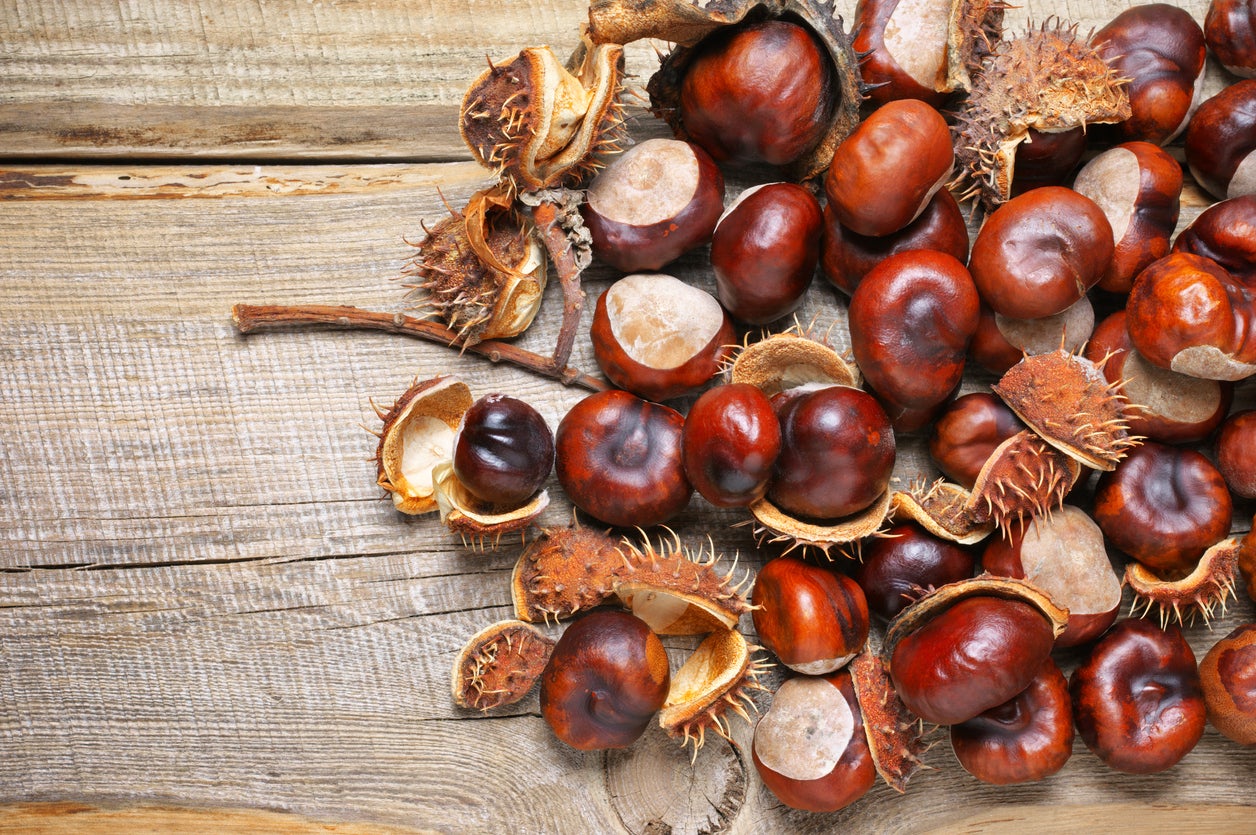Are Horse Chestnuts Edible: Learn About Toxic Horse Chestnuts


When you hear the song about chestnuts roasting on an open fire, don’t mistake these nuts for horse chestnuts. Horse chestnuts, also called conkers, are very different nuts. Are horse chestnuts edible? They are not. In general, toxic horse chestnuts should not be consumed by people, horses, or other livestock. Read on for more information about these poisonous conkers.
About Toxic Horse Chestnuts
You’ll find horse chestnut trees growing across the U.S., but they originally come from Europe’s Balkan region. Brought to this country by the colonists, the trees are widely grown in America as attractive shade trees, growing to 50 feet (15 m.) tall and wide.
The palmate leaves of the horse chestnuts are also attractive. They have five or seven green leaflets united in the center. The trees produce lovely white or pink spike flowers up to a foot (30.5 cm.) long that grow in clusters.
These blossoms, in turn, produce spiny nutshells containing smooth, shiny seeds. They are termed horse chestnuts, buckeyes, or conkers. They resemble edible chestnuts but are, in fact, TOXIC.
The horse chestnut’s fruit is a spiny green capsule 2 to 3 inches (5-7.5 cm.) in diameter. Each capsule contains two horse chestnuts or conkers. The nuts appear in autumn and fall to the ground as they ripen. They often display a whitish scar at the base.
Can You Eat Horse Chestnuts?
No, you cannot consume these nuts safely. Toxic horse chestnuts cause serious gastrointestinal problems if consumed by humans. Are horse chestnuts poisonous to animals as well? They are. Cattle, horses, sheep, and chickens have been poisoned by eating poisonous conkers or even the young shoots and foliage of the trees. Even honeybees can be killed by feeding on horse chestnut nectar and sap.
Consuming the nuts or leaves of horse chestnut trees causes bad colic in horses and other animals develop vomiting and abdominal pain. However, deer seem to be able to eat poisonous conkers without ill effect.
Sign up for the Gardening Know How newsletter today and receive a free copy of our e-book "How to Grow Delicious Tomatoes".
Uses for Horse Chestnuts
While you cannot safely eat horse chestnuts or feed them to livestock, they have medicinal uses. Extract from the poisonous conkers contains aescin. This is used to treat hemorrhoids and chronic venous insufficiency.
In addition, over history conkers have been used to keep spiders away. However, there is some debate about whether or not the horse chestnuts actually repel the arachnids or simply appear at the same time spiders disappear in winter.

Teo Spengler is a master gardener and a docent at the San Francisco Botanical Garden, where she hosts public tours. She has studied horticulture and written about nature, trees, plants, and gardening for more than two decades, following a career as an attorney and legal writer. Her extended family includes some 30 houseplants and hundreds of outdoor plants, including 250 trees, which are her main passion. Spengler currently splits her life between San Francisco and the French Basque Country, though she was raised in Alaska, giving her experience of gardening in a range of climates.